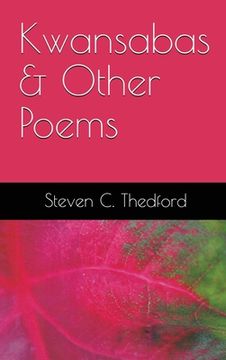Reseña del libro "Kwansabas and Other Poems (en Inglés)"
The Kwansaba is an African American verse form of praise created in 1995 by Eugene B. Redmond, East St. Louis Poet Laureate and professor of English at Southern Illinois-East St. Louis. The poems honor Kwanzaa, a celebration of family and African American culture, and praise writers such as Richard Wright and Sonia Sanchez. The poetic style of the Kwansaba utilizes the number seven, the numeric foundation of Kwanzaa. Thus, a Kwansaba is a heptastich, a poem of seven lines, with seven words in each line, and written with no word exceeding seven letters. Darline Roy talks about the strict rules of a Kwansaba. The idea was first used by Eugene B. Redmond and refined in the summer workshop of 2015. But there are exceptions to the rule of seven. He agrees that imposing some restriction makes you think about what you are writing. Another example of a kind of poem that has rules is a haiku, a very short form of Japanese poetry in which the first sentence has five syllables, the second line has seven syllables, and the last line has five syllables. In addition, the Kwansaba poetic form embraces its roots from the South African tradition of the praise poem, called the izibongo in Zulu. A praise poem offers veneration to a person, which was popular in the Middle Ages and continues to be embraced in African cultures today. However, the African praise poem is not restricted to this part of the continent and is not uniquely an African motif; it was used during the Renaissance in Europe. Moreover, the praise poem itself is the manifestation of the oral tradition of atavistic songs of the African ancestors. The "Other Poems" featured in the later part of the book are digressive; they may follow the rules of the Kwansaba but sometimes do not offer praise. The subjects of the poems range from relationships to community.Kwansabas and Other Poems represents my interpretation of the art form, and hopefully, I have contributed to this particular type of poem, expanding its purview.

